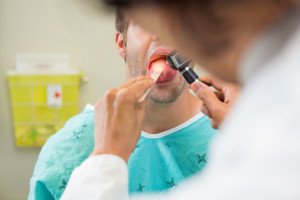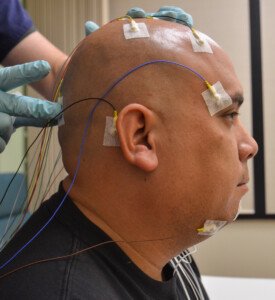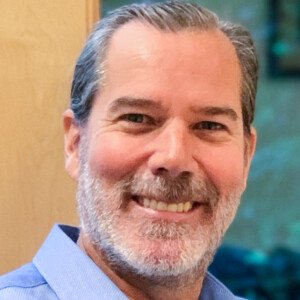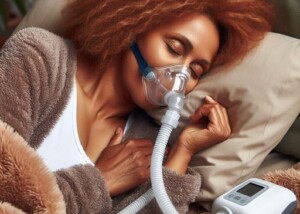
Has your doctor said you can’t possibly have sleep apnea based on only your medical history and exam while you were awake?
And are you feeling reassured over this?
The most prominent complaints of a sleep apnea sufferer are daytime fatigue and drowsiness.
Often, the individual falls asleep while reading, doing a crossword puzzle, watching TV or even driving.
Naps usually do not make the sufferer feel refreshed.
It’s possible for a primary care physican to assure the patient that they probably do not have obstructive sleep apnea after examining that patient while they were awake and asking them some questions.
My father’s primary care physician one day informed him that he didn’t have sleep apnea, even though a sleep study (which is done only when the patient is asleep) had never been conducted.
This was even though my father was a heavy snorer, took lengthy frequent naps and easily fell asleep when in his favorite chair.
Can sleep apnea be diagnosed or ruled out while the patient is awake?
“It can’t! That’s why they don’t call it ‘awake apnea,’” says Daniel Rifkin, MD, a sleep medicine expert at the Sleep Medicine Centers of Western New York.
“Although taking an adequate history and performing a physical, virtually or otherwise, is important, one must be tested for a definitive diagnosis.
“Studies have shown that clinical evaluation simply isn’t enough to make the diagnosis of sleep apnea.”
Another issue with attempting to rule out sleep apnea while the patient is awake is that the patient’s answers to questions might be subjective or deliberate lies.
For example, if a doctor asks the patient, “Do you fall asleep easily during the day?” the patient might answer (and truly believe this), “Only occasionally when a TV show is boring.”
The patient may take daily two-hour naps yet answer, “I take only brief naps.”
Thus, answers to a questionnaire are meaningless.
Only a sleep study can provide objective data to the physician.

Getting prepped for a sleep study at a lab. Sleep studies can also be done at home.
What are other symptoms of sleep apnea?
• Loud snoring, usually with gasping or snorting sounds
• Observable cessation of breathing during sleep
• Being abruptly awakened by shortness of breath
• Having a dry mouth, sore jaw or sore throat upon awakening
• Morning headaches that go away fairly quickly
• Insomnia, fidgeting while asleep
I asked my father how the doctor was able to tell while he was awake that he did not have sleep apnea.
My father replied that the doctor asked him some questions, examined his throat and determined he didn’t have sleep apnea!
At home, I’d observe his breathing stop for 35 seconds at a time, many times during his naps.
A sleep study is called nocturnal polysomnography and it measures multiple physiologic parameters while the patient is asleep.





































